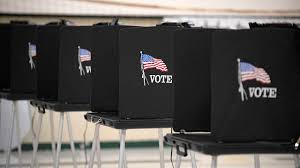Texas Voters Enshrine Controversial Citizenship Requirement for Voting, Igniting National Debate on Democracy and Inclusion
In a significant political move, Texas voters have approved a constitutional amendment that mandates U.S. citizenship as a prerequisite for voting in the state. This decision, which reflects a growing trend in several states across the nation, has sparked intense debate regarding the implications for democracy, inclusivity, and the rights of noncitizens.
The amendment, which passed with overwhelming support, explicitly prohibits noncitizens from participating in elections, a measure that proponents argue is essential for maintaining the integrity of the electoral process. Advocates for the amendment assert that it is a necessary step to prevent voter fraud and ensure that only those who have a stake in the country’s future can influence its governance. They argue that citizenship confers a unique responsibility and privilege, one that should not be extended to individuals who have not undergone the naturalization process.
However, critics of the amendment contend that it is a blatant attempt to disenfranchise certain populations, particularly immigrants and communities of color. They argue that the move is rooted in xenophobia and a desire to consolidate political power among a specific demographic. The implications of such a constitutional change extend beyond Texas, as it may set a precedent for other states to follow suit, further entrenching barriers to voting for noncitizens.
The debate surrounding voter ID laws and citizenship requirements is not new. Over the past decade, numerous states have enacted legislation aimed at tightening voting regulations, often citing concerns over election security. These measures have frequently faced legal challenges and public backlash, with opponents arguing that they disproportionately affect marginalized groups who may lack the necessary identification or documentation to vote.
In Texas, the passage of this amendment comes at a time when the state is experiencing significant demographic shifts. With a growing population of immigrants and nonwhite residents, the political landscape is evolving, leading to heightened tensions between those who advocate for more inclusive policies and those who seek to restrict access to the ballot box. The amendment could exacerbate these divisions, as it sends a clear message that citizenship is a non-negotiable requirement for participation in democracy.
Moreover, the amendment raises questions about the broader implications for civic engagement and community representation. By excluding noncitizens from the electoral process, Texas risks alienating a substantial portion of its population, many of whom contribute to the economy and society in meaningful ways. Critics argue that this exclusion undermines the democratic principle of representation, as it silences voices that are integral to the community fabric.
The national discourse surrounding voting rights has intensified in recent years, particularly in the wake of the 2020 presidential election, which saw unprecedented levels of voter turnout and engagement. The aftermath of that election has prompted a wave of legislative actions aimed at either expanding or restricting access to the ballot, with states divided along partisan lines. In this context, Texas’ decision to enshrine citizenship as a voting requirement can be seen as part of a broader strategy by Republican lawmakers to consolidate power and influence in a rapidly changing political landscape.
As the debate continues, the implications of Texas’ constitutional amendment will likely reverberate beyond state lines, influencing discussions about voting rights and citizenship across the country. The issue of who gets to vote is deeply intertwined with questions of identity, belonging, and the very nature of democracy itself. As more states consider similar measures, the national conversation about the future of voting rights and the role of noncitizens in American society will only grow more urgent and contentious.
The rejection of sweeping voter ID requirements in states like Maine further highlights the stark contrast in approaches to voting rights across the nation. While some states are moving to tighten regulations and exclude certain populations from the electoral process, others are advocating for more inclusive policies that recognize the importance of every voice in a democratic society. This divergence reflects deeper ideological divides within the country, as communities grapple with the balance between security and accessibility in the electoral process.
In conclusion, the passage of the constitutional amendment in Texas marks a pivotal moment in the ongoing struggle for voting rights and representation in the United States. As the nation grapples with the implications of this decision, the conversation surrounding citizenship, democracy, and inclusion will continue to evolve, shaping the future of American politics for years to come.

